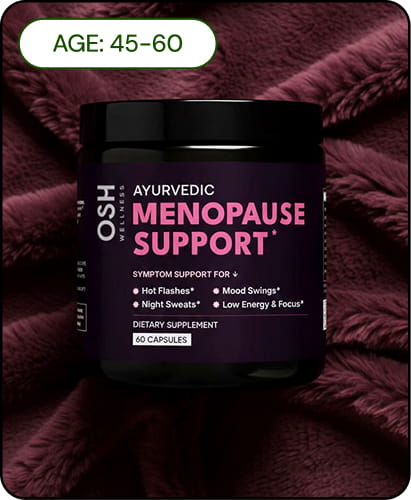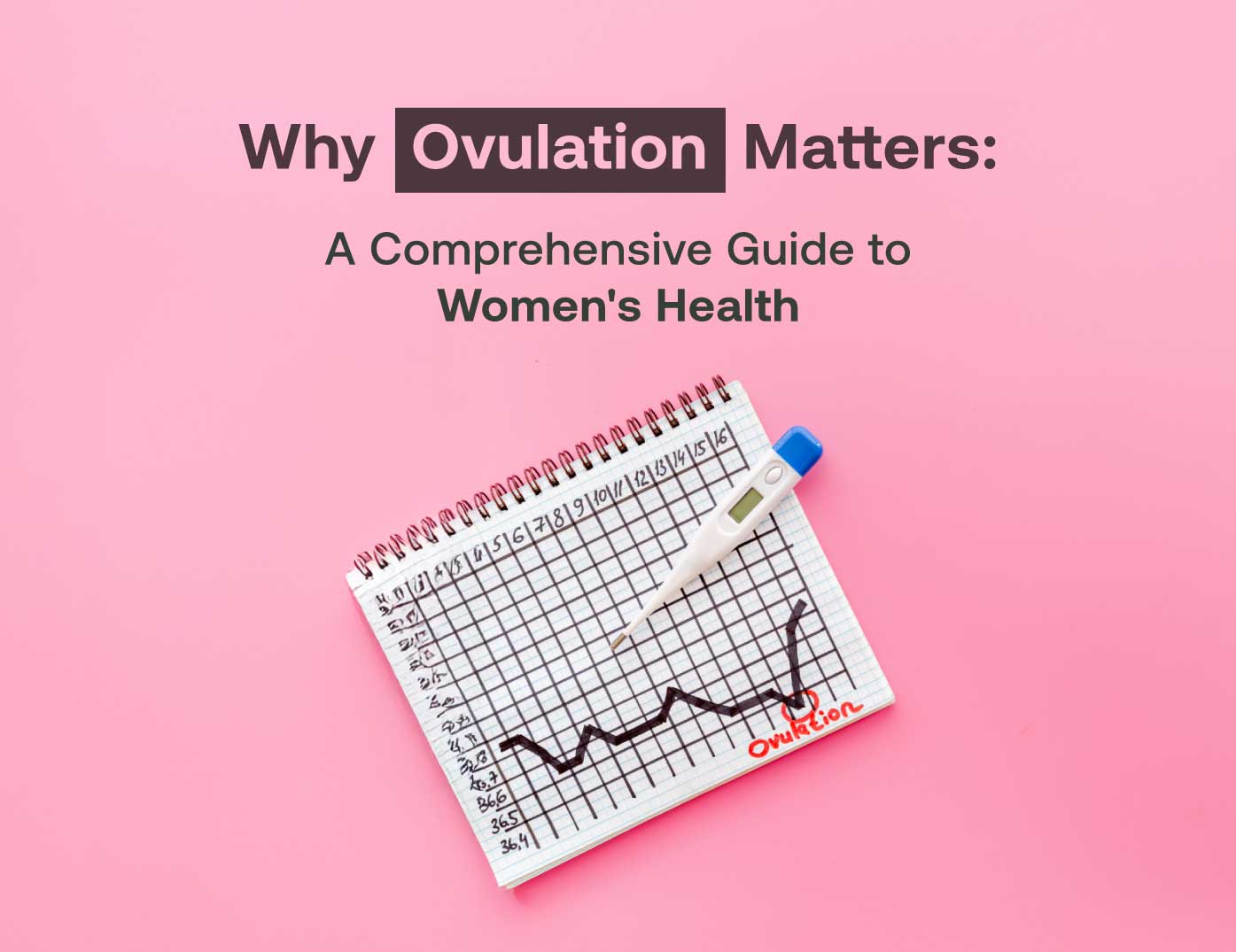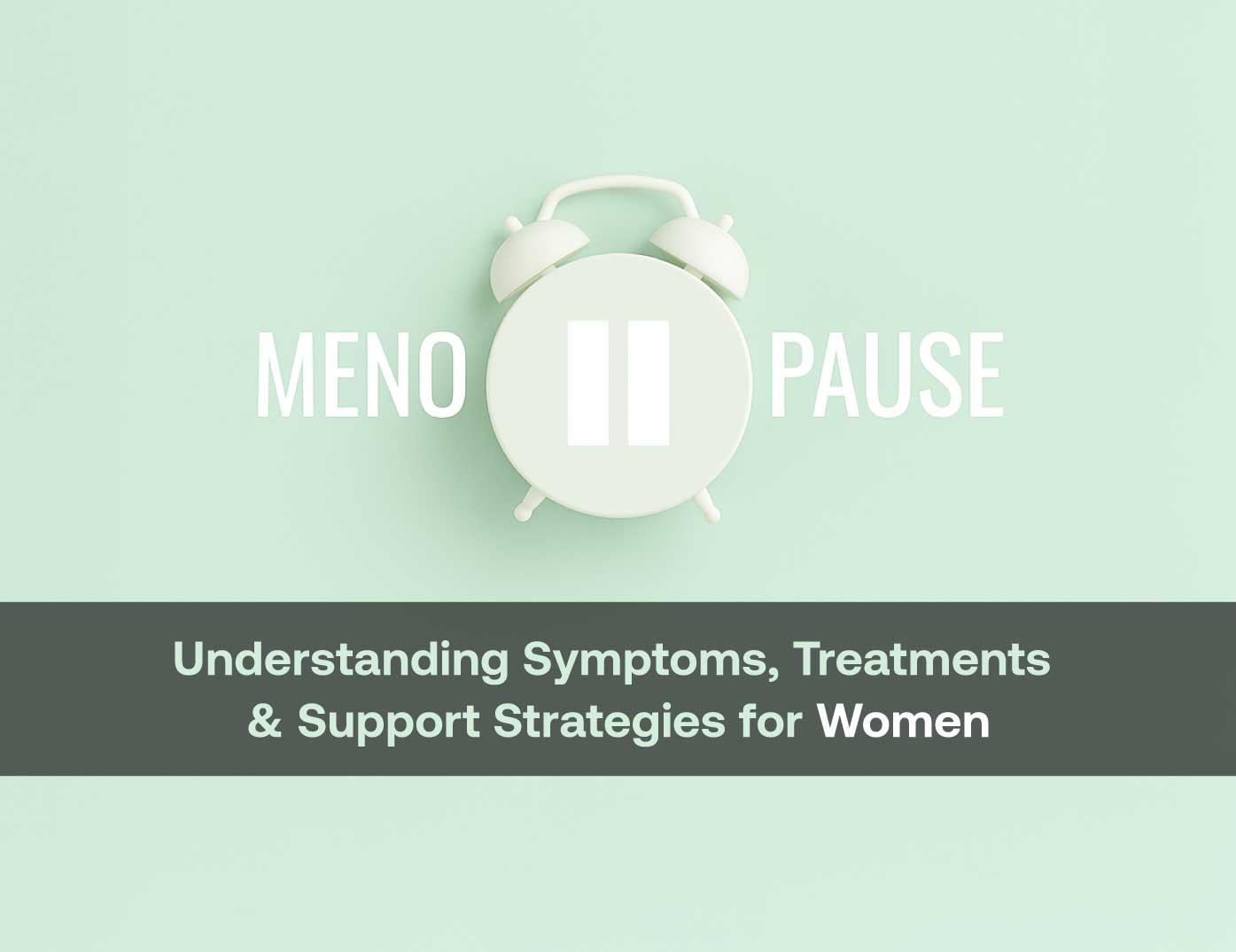Table of contents
Ovulation serves as a crucial indicator of women’s health, offering insights into hormonal balance and overall well-being. While traditionally associated with fertility, current research highlights its role in metabolic and cardiovascular health. This guide to ovulation explores its multifaceted nature, examining its significance, modern monitoring strategies, historical roots, and practical lifestyle considerations. Designed especially for women aged 30 to 45, it empowers readers to take proactive control of their reproductive and holistic health.
Introduction to Ovulation and Its Significance

Ovulation is fundamentally significant in women’s health, historically recognized for its connection to fertility. However, emerging evidence now positions ovulation as a key health marker with broad physiological implications. During ovulation, the body releases crucial hormones, estradiol and progesterone, which influence much more than reproduction.
Estradiol helps build muscle, increases insulin sensitivity, and protects cardiovascular and cognitive health, thereby lowering the risk of stroke and dementia [1].
Progesterone regulates the immune system, reduces inflammation, and supports thyroid function [2].
Understanding ovulation is particularly important for women aged 30 to 45, as hormonal changes during this stage may signal underlying conditions such as PCOS or thyroid dysfunction [3]. Regular ovulation also influences mood, metabolism, and stress response [4].
Ovulation contributes to long-term health protection. Each cycle can be seen as a monthly deposit into a “health bank,” reinforcing the critical importance of tracking ovulation for early detection of hormone imbalances [5].
Historical Context and Understanding the Menstrual Cycle

The historical view of ovulation has evolved significantly. In ancient times, menstruation was often cloaked in myth. The “wandering womb” theory claimed the uterus could move throughout the body, causing illness and emphasizing ideas of female fragility [6].
By the early 20th century, the rise of gynecology had begun to ground reproductive health in scientific study, albeit within a field dominated by men. Feminist advocacy began pushing for more accurate and women-centered healthcare [7].
Scientific advances in the 1920s identified the timing of ovulation, and the discovery of the role of cervical mucus in fertility awareness marked a transformative shift 8][8]. The launch of the oral contraceptive pill in 1961 gave women control over their cycles and marked the beginning of broader discourse surrounding reproductive autonomy [9].
Today, societal attitudes continue to shift, fostering more openness and empowerment around menstrual health [10]. Understanding ovulation is central not just to biology, but to women’s evolving place in healthcare systems and society.
Guide to Ovulation as a Crucial Health Marker

Beyond fertility, ovulation is a key indicator of hormonal integrity. It signals the healthy function of the endocrine system through the regular release of estradiol and progesterone [1]. These hormones optimize muscle composition, insulin sensitivity, and offer protection for bone and cardiovascular health.
Conditions like PCOS, which disrupt ovulation, significantly impact long-term health. Women with PCOS often face early-onset insulin resistance, increasing their risk of type 2 diabetes and metabolic syndrome [6]. Moreover, PCOS is associated with a higher likelihood of cardiovascular complications [7].
Professor Jerilynn Prior has described ovulation as a “monthly deposit” into a woman’s long-term health [3]. Regular ovulation plays a protective role against issues such as osteoporosis, stroke, and heart disease. Early recognition and treatment of ovulatory problems can dramatically improve overall well-being.
Technological Advancements in Ovulation Tracking

Modern technology has revolutionized ovulation tracking, making it more precise and accessible than ever before. Here are some standout advancements:
Wearable fertility monitors from several brands measure basal body temperature, heart rate, and hormone levels, achieving up to 90% predictive accuracy [8].
Digital ovulation test kits detect hormones like LH and estrogen with enhanced sensor technology and smartphone syncing for data analysis [9].
AI-powered mobile apps analyze real-time and historical menstrual data, especially powerful when paired with wearable tech to provide individualized fertility insights [10].
These innovations have improved usability with features like Bluetooth integration, app reminders, and intuitive interfaces, making them relatable even for first-time users. Although there remain challenges like regulatory inconsistencies and occasional accuracy issues, digital ovulation tracking has become a cornerstone of reproductive self-care [11].
Lifestyle Factors Influencing Ovulation

Every day lifestyle habits play a pivotal role in supporting or disrupting ovulation. Here's how diet, physical activity, and stress influence reproductive health:
Nutrition: A diet rich in omega-3s, folate, and lean proteins while avoiding excess sugars helps regulate hormones. Processed foods can lead to inflammation that disrupts ovulatory patterns [12].
Exercise: Moderate, consistent physical activity supports hormonal balance and reproductive function. Over-exercising, however, can hinder ovulation [14].
Stress: Chronic stress increases cortisol, which suppresses ovulation. Mindfulness, meditation, and therapy help mitigate these effects [13].
Integrated lifestyle management, balancing nutrition, movement, and stress, is essential in ensuring healthy ovulatory cycles and enhancing fertility potential.
Common Misconceptions and FAQs about Ovulation

Several common misbeliefs about ovulation can hinder understanding and reproductive planning:
Myth: Ovulation happens exactly on day 14. In truth, it varies widely between individuals [16].
Myth: Only one egg is released; sometimes multiple eggs are released, increasing the chances of twins [16].
Myth: Pregnancy is impossible during menstruation, sperm can survive up to five days, making conception possible [17].
Myth: Tracking BBT is always accurate; other factors like illness or sleep can skew temperature readings [18].
Myth: Daily sex improves conception odds; it's equally effective to engage in intercourse every 1–2 days during the fertile window [18].
Relevant Products
The Osh Wellness Preconception Cleanse supports hormone health and ovulation using evidence-based, natural ingredients. It’s an excellent supplement for those aiming to boost fertility naturally and reset the ovulatory cycle.
Conclusions

Ovulation is central not only to fertility but also to the whole-body health of women. Understanding and tracking it gives insights into hormonal, cardiovascular, and metabolic wellness. Combining advanced technologies with sustainable lifestyle choices empowers women to take charge of their health at every life stage. As ovulation awareness grows, so does our capacity to recognize its pivotal role in long-term vitality.
FAQs
Can I track my ovulation accurately?
Yes, using ovulation predictor kits, wearable devices, and cervical mucus monitoring can offer valuable insights.
Is it normal to skip ovulation sometimes?
Occasional missed ovulation can occur due to stress or illness. However, frequent anovulatory cycles should be evaluated by a provider.
Can lifestyle changes affect my ovulation?
Absolutely. Diet, stress reduction, and balanced exercise strongly impact ovulatory health.
How do I know if I’m ovulating?
Physical signs include cervical mucus changes, mild abdominal pain (mittelschmerz), and BBT shifts.
Sources
1: Lara Briden - The Secret Powers of Ovulation
2: Gia Stewart - Healthy Hormones: Women’s Hormones and Their Roles in Ovulation
3: Juniper Family Health - Are You Ovulating?
4: Hormone Health Studio - Ovulation: Balancing Hormones
5: Women’s International - Ovulation: Crucial to Women’s Health
6: Royal College of Nursing - The Wandering Womb
7: Oxford Academic - Historical Perspectives on Women's Health
8: Facts About Fertility - A Brief History of Scientific Advances
9: Taylor & Francis Online - Evolving Understanding of Menstruation
10: The Girls' Co. - A Historical Perspective on Women's Health
11: NCBI - The Role of Ovulation in Carnivore Health
12: OUP - The Endocrine Society
13: Pacific Fertility Center - Lifestyle Factors That Affect Fertility
14: Iowa Fertility - How Diet, Exercise & Stress Affect Your Reproductive Health
15: NIH - Infertility: Causes & Lifestyle
16: Clue - What You May Not Know About Ovulation
17: Hertility Health - Fertility Myths
18: Proov Test - Common Myths About Ovulation
19: Family Wellness Acupuncture - Common Myths About Ovulation
20: Adore Fertility - Fertility Treatments for 2025
21: Fertility Dost - Ovulation Tracker in 2025
22: DataBridge Market Research - Ovulation Test Kit Market
23: Data Insights Market - Ovulation Rapid Test Kits
24: Ankuran Clinic - New Fertility Technology in 2025








